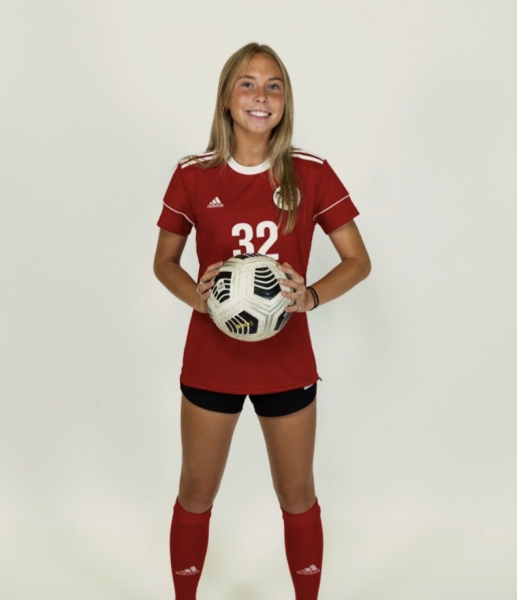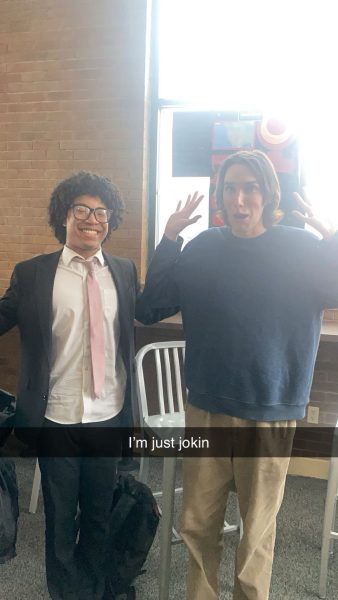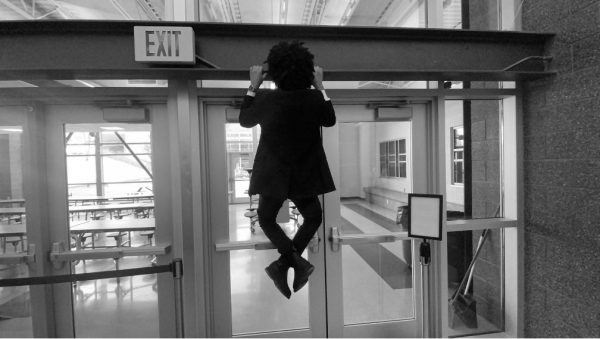NFL- Respect or Not?
The flag waved as the anthem boomed from the speakers on Dozier Field. Every spectator rose to their feet and turned in unison toward the American Flag. The lines of athletes on the field stood, shoulder to shoulder, their hands pressed against their jerseys, gazing upon the stars and stripes.
While the National Anthem proceeded normally at our local football game, hundreds of games around the country did not. Players from high schools to the NFL kneeled for the duration of the song, causing an uproar amongst Americans that has yet to settle down, even once the anthem ended.
The debate over the anthem began 13 months ago when Colin Kaepernick first sat, and then kneeled, during the National Anthem at the start of a San Francisco 49ER’s football game.
“I am not going to stand up to show pride in a flag for a country that oppresses black people, and people of color,” Kaepernick expressed in a press conference. As of printing this issue, Kaepernick is still a free agent without a team. Hundreds of players across the nation are still kneeling while many still stand.
This year, after more NFL players kneeled to protest police brutality and inequality for People of Color in the U.S., President Donald Trump entered the conversation. During a campaign rally he stated, “Wouldn’t you love to see one of these NFL owners, when somebody disrespects our flag, to say, ‘Get that son of a b**** off the field right now, out, he’s fired. He’s fired.”
The President caused an uproar in the NFL, and players who weren’t kneeling for police brutality kneeled in an unity effort to oppose the President.
Most players kneeled to oppose racial injustice. These individuals are showing their frustration with police brutality in the United States by taking a respectful kneel, while others have sat on their respective benches. The protests in the NFL have seeped into college and high school sports as well, in a myriad of different circumstances.
In Greenville, Mississippi, four football players from O’Bannon High School were suspended indefinitely after kneeling during the National Anthem. In a recent interview, Western Liner School District’s Superintendent, Larry Green explained, “We think the punishment is adequate for what happened. Maybe they can come back before the season is over. We haven’t closed the door. We just want them to understand the value to respect our country and flag.”
This is likely to cause further controversy because O’Bannon High School is part of a public school district but explicitly opposes kneeling. The Supreme Court Case, Tinker vs. Des Moines Independent Community School District, explicitly prohibits schools from restricting students speech unless it “materially and substantially interfere[s]” with how the school functions. As protests continue, the role of this court case may be critical in understanding student rights.
This is just one of many cases across the country. There are stories of players kneeling and facing punishment, players who are kneeling without a punishment, and players who feel they have no reason to kneel.
At the local level, while many private and public schools around the nation require their athletes and spectators to behave in a specific manner during the National Anthem, Park City High School allows their students to express their opinions through an open policy.
Athletic Director Jamie Sheetz relayed the school’s approach by explaining, “[Students] can turn around, sit down, take a knee, talk if they want to. I think everybody collectively, as a collective conscience, would understand that is disrespectful to do that, but it is still a person’s right to be able to express their opinion.”
David Feasler, the head baseball coach at Park City, is a strong supporter of the lenient policy and believes “[W]hat it comes down to with kneeling for the National Anthem is people’s opinions, and they will always have their right to their opinion.”
Although the matter escalated around football, Mr. Feasler sees the relevance to all sports because of the remarkable impact professional athletes leave on their fan base. He views the action as a bigger issue than kneeling for the National Anthem, and hopes it encourages his players to share their opinions with one another.
In regards to a community perspective, each additional national news story sparks conversations within the district as a whole, and students are discussing about the controversy.
On October 8th, Vice President Mike Pence attended an Indianapolis Colts game where the San Francisco 49ER’s kneeled during the National Anthem, after which the Vice President and the Second Lady left the game as a result of the kneeling.
Individuals in the Park City community have reacted differently, mainly depending on political affiliation. One student from Park City High School, Junior Ryan Cook, tweeted “Mike Pence had the RIGHT to walk out, his right to protest. Why is it that he has the right to protest but the @NFL players don’t?” This tweet and other news stories have sparked conversation among the students and teachers within the school.
While Park City High School will proceed with an open policy around peaceful behavior during the National Anthem, Mr. Sheetz, along with the rest of administration, wants students to realize “[T]here is a difference between kneeling and being disruptive.” As this subject continues to grow and students continue formulating opinions on the matter, the school wants students to fully express their beliefs, but in a respectful and civil manner.







